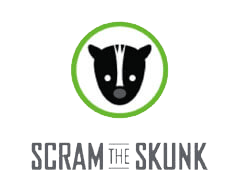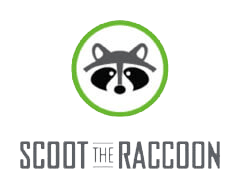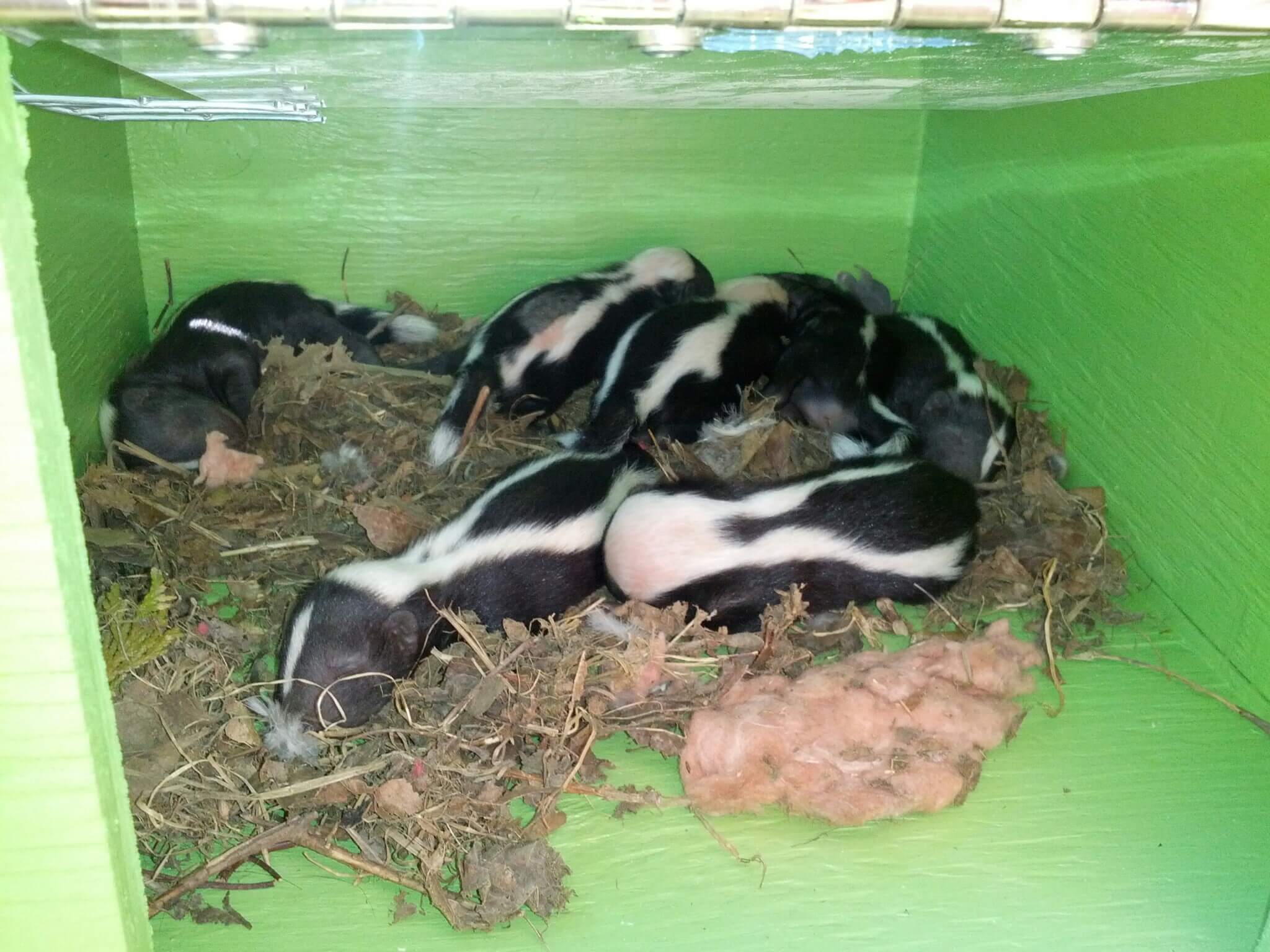SKUNK REMOVAL PROCESS
Assess and Remove
To solve a skunk problem, we start with a complete assessment of your property to determine where the skunks are living and how they’re gaining access. Since skunks do not climb our inspection will focus on the ground level den sites like porches, decks and sheds. We then perform a careful and humane removal, including any babies.
Clear and Clean
Once we humanely remove any skunks and their babies we will move on to clearing the den site of any damaged property, nesting material or debris that was gathered by the animals. We can then begin cleaning, disinfecting and deodorizing the area to eliminate any risk of illness, irritating odors and attractants for other wildlife.
Prevent and Protect
To prevent a future skunk problem, our technicians will get to work installing protective barriers designed to keep skunks out. This usually involves digging out around the perimeter of the deck, shed or porch and burying a heavy steel mesh deep into the ground. Our workmanship and materials are backed by a lifetime warranty.
WHAT OUR RICHMOND HILL CLIENTS SAY:
When I called to book an inspection, I was given a quick booking time. James M came within the window of time, called ahead and was professional upon arrival. He was able to assess the property and give me a plan of action! He was able to provide great solutions to the problem! I would recommend!
Julie Riegert
Skunks in Richmond Hill
The Richmond Hill area is home to a diverse selection of wildlife, including skunks. These striped mammals are highly curious and very intelligent. Unfortunately, this means that they can be very good at getting into homes, under porches and into sheds. If you think you may have a skunk problem, Skedaddle Humane Wildlife Control can help.
Our three-step process involves assessing damage, humanely removal the animal, and preventing re-entry. Our trained experts work hard to ensure that the skunks are fully relocated to a more fitting habitat.
Skunks are relatively unaggressive, but they can be dangerous if they feel threatened. Their most famous defense mechanism is the odorous spray. However, they can also bite and scratch people and pets.
Like other wildlife, skunks carry the risk of spreading rabies. They may also carry parasites and bacteria. In addition to the skunks themselves, their nests and droppings can be vectors for disease. While skunks are fascinating creatures to learn about, they are an issue that should be addressed seriously and promptly. If you have a problem with skunks around your property in Richmond Hill, contact our experts today.
Skunk Facts
FACT:
Skunks aren’t very good climbers, but they are excellent burrowers. They can dig out dens beneath porches, decks and sheds. They can also get underneath fences.
FACT:
Skunks like to stick together. In some cases, there may even be multiple families in a single den.
FACT:
Skunks don’t usually spray without warning unless the danger is deemed imminent. They usually give a sign by raising their tails, stomping their front feet or turning their backsides in the direction of their target.
FACT:
Skunks don’t see very well, but they still have great aim! They can hit a target up to 3 metres away.
CHECK OUT OUR LATEST BLOGS
4 Things To Know About Skunk Spray
Everything You Need to Know About Skunks and Their Stripes
Is Skunk Spray Dangerous To Cats?
Richmond Hill Wildlife Removal: Are Skunks Good Climbers?
Richmond Hill Wildlife Removal: Can Skunks Be Pets?












